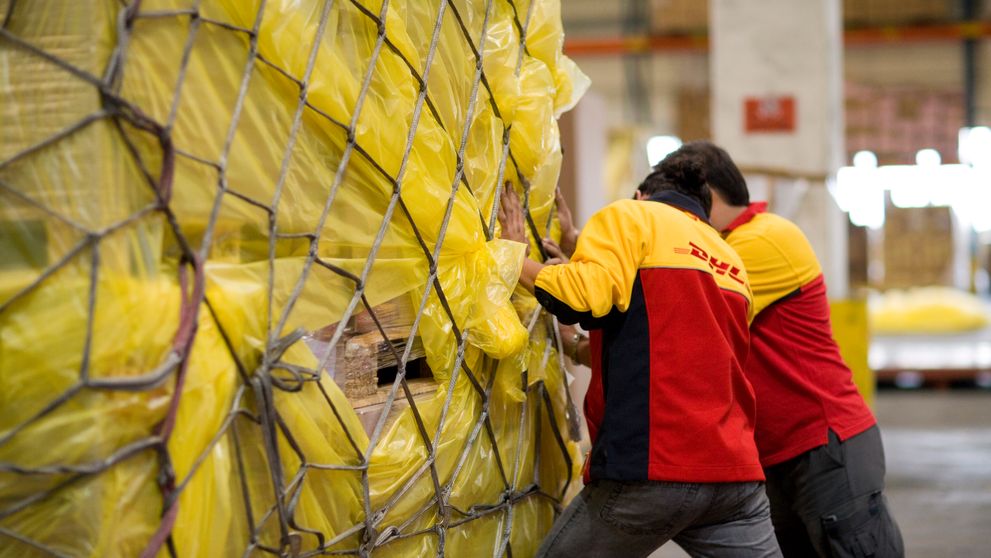Just-in-time (JIT) logistics is a strategic approach designed to streamline production and delivery processes by minimizing inventory levels and maximizing efficiency. For businesses in India that focus on the B2B market, adopting JIT in logistics can be beneficial, especially for cost savings and increasing one’s competitive edge in the industry.
By understanding and implementing just-in-time logistics, businesses in India can better meet customer expectations, enhance supply chain resilience, and support their long-term growth in an increasingly competitive market.
What is just-in-time (JIT) logistics?
Just-in-Time, also known as JIT, is a logistics strategy where products and materials arrive "just in time" for production or customer delivery. This approach eliminates the need for large warehouses and extensive inventory storage, streamlining the supply chain and reducing costs. By receiving goods only when needed, businesses can minimize waste, free up capital, and respond quickly to market demands.
Examples of JIT in logistics
JIT logistics is often seen in automotive manufacturing, where parts arrive just as they're needed in the assembly process to avoid stockpiling. However, this approach is increasingly becoming common in various industries like electronics, healthcare, and food and beverage, where minimizing storage costs and maximizing responsiveness is critical.
Advantages of just-in-time logistics
JIT offers a compelling array of benefits for businesses in India, including:
1. Cost savings
JIT logistics can help minimize operational costs by reducing the need for warehousing. Instead of investing in large storage facilities, businesses can leverage JIT to receive goods only when needed, eliminating expenses related to rent, utilities, and warehouse staff. This means lower overhead costs and increased profitability.
Moreover, JIT minimizes inventory holding costs, such as insurance, security, and potential losses from obsolescence or damage. By reducing these expenses, businesses can free up valuable resources to invest in innovation, marketing, and other initiatives that can help drive business growth and competitiveness.
2. Reduced capital commitment
Just-in-time inventory management significantly reduces the amount of capital tied up in idle products in storage. Traditionally, businesses would invest substantial capital in acquiring and storing large quantities of goods, which could remain unused for extended periods. But with JIT, businesses only purchase materials and products when required for production or customer orders. This frees up capital, improves cash flow, and allows companies to focus on investing in other critical business areas.
3. Enhanced market responsiveness
Adopting a just-in-time strategy results in minimal inventory, enabling businesses to quickly adapt to new trends, introduce new products, and adjust production levels without being burdened by excess stock. This flexibility also enables businesses to capitalize on emerging opportunities, reduce the risk of obsolete inventory, and meet customer expectations for efficient delivery times.
Drawbacks of just-in-time logistics
While JIT offers significant advantages, it may also come with potential challenges:
1. High control requirements
A just-in-time strategy relies heavily on precise control and coordination across the entire supply chain. This means every step of the production, logistics, and shipping process needs to be meticulously planned and executed. Even minor supplier delays, transportation disruptions, or production bottlenecks can affect the entire system, leading to costly disruptions and downtime. To mitigate this, businesses should establish strong relationships with reliable suppliers, invest in robust tracking systems, and implement stringent quality control measures throughout the supply chain.
2. Increased risk of default
JIT operates with minimal inventory buffers, increasing vulnerability to unexpected disruptions. Equipment malfunctions, natural disasters like floods or earthquakes, transportation delays, and even political instability can disrupt the flow of goods and halt production.
Unlike traditional systems with safety stock, JIT leaves little room for error. This makes it crucial for businesses to have contingency plans, diversify their supplier base to mitigate risks, and consider holding small strategic reserves of critical components.
3. The need for large delivery zones
To ensure the timely delivery of goods "just in time," businesses must operate within extensive and reliable delivery zones. This is particularly important for companies with geographically dispersed operations across India, where distances can be vast, and infrastructure can vary significantly. Building a robust distribution network capable of reaching all necessary locations with speed and precision requires significant investment and logistical expertise. Therefore, businesses need to consider factors like transportation infrastructure, delivery timeframes, and the availability of reliable logistics partners to ensure the seamless flow of goods across their entire operational area.
Trend in just-in-time logistics and delivery that businesses in India should watch out for
To stay competitive and maximize the benefits of Just-in-Time logistics, businesses in India should keep an eye on these key trends:
1. Automation and real-time monitoring
Automation is changing the way JIT logistics by providing unprecedented visibility and control over the supply chain. Automated systems can track inventory levels in real time, providing accurate stock availability and movement data. This real-time information allows businesses to optimize their inventory management, ensuring they have the right materials at the right time without excessive stockpiling.
Additionally, automation tools can analyze historical data and market trends to optimize demand forecasting, enabling businesses to anticipate future needs and adjust their supply chain accordingly. This helps reduce the possibility of stockouts and ensures a seamless production process.
2. Artificial intelligence (AI) and the Internet of Things (IoT)
AI and IoT are transforming JIT by introducing intelligent automation and seamless communication across the supply chain.
AI algorithms can analyze vast amounts of data to identify patterns, predict potential disruptions, and optimize logistics operations. This reduces human error in inventory management, freeing up employees for higher-level tasks like customer relationship management, strategic planning, and innovation.
On the other hand, IoT enables interconnectedness between machines, vehicles, and other assets in the supply chain. This allows for real-time tracking of goods, automated inventory updates, and improved coordination between different stages of the production and delivery process.
3. Value stream mapping
Value stream mapping is considered a lean manufacturing technique that visually represents the whole production process, from raw materials to finished goods. Mapping out each step in the value stream allows businesses to pinpoint potential bottlenecks and areas for improvement. This helps optimize material flow, reduce waste, and shorten lead times.
4. Sustainability in JIT models
As businesses recognize the environmental and social impact of their supply chain operations, they are beginning to seek ways to minimize their footprint actively. The JIT strategy inherently supports sustainability by reducing waste through optimized production and minimizing the need for excessive transportation.
Many companies that are adopting the JIT strategy in their operations are going further by adopting eco-friendly practices such as using sustainable packaging materials and optimizing transportation routes for fuel efficiency. These initiatives reduce environmental impact and enhance brand reputation by aligning with the values of environmentally conscious consumers in India.

Work with DHL Express for JIT Logistics
Are you planning to adopt a just-in-time strategy in your operations? Partnering with DHL Express can provide businesses in India with the expertise and reliability necessary for smooth JIT implementation. Our logistics professionals understand the precise requirements of JIT, from inventory management to ensuring timely, dependable deliveries that align with your production schedules.
With a robust global network and expertise in international shipping, DHL Express is equipped to handle complex, time-sensitive logistics and provide solutions that adapt to your unique business needs. By engaging with DHL Express’s services, you’ll benefit from streamlined supply chain processes, improved market responsiveness, and a dedicated team ready to support your JIT logistics for optimal efficiency and cost savings.
Open a business account with DHL Express today to get started with just-in-time logistics and overseas shipping.









